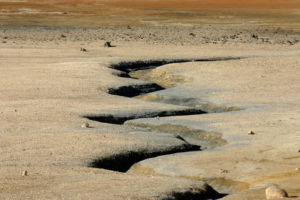This article by Sandra Postel appeared on the Post Carbon Institute’s website, March 28, 2018.
Do rivers have a right to water?
As dams and diversions deplete flows, it’s a question environmental advocates and legal scholars are asking more and more. Over the last decade, rivers in Ecuador and New Zealand have won legal rights, and a recent case in the western United States attempted to do the same for the Colorado River.
While it is tempting to brush these legal moves off as aberrations, a wiser course of action is to proactively step up efforts to restore rivers to better health.
The case filed in federal district court in Denver last September to establish a legal right for the Colorado River ecosystem to “exist” and “flourish” and to have the benefit, as people and corporations do, of representation in a court of law, was akin to a cry from the mountaintops to rescue this culturally prized, ecologically magnificent, but highly damaged river system.
Some viewed the case as nonsensical, and, while it drew substantial media attention, it appeared fraught from the start. In early December, under pressure from the state of Colorado’s attorney general, the plaintiffs withdrew their case.
But the hard truth remains that existing laws and policies have failed to protect the health and integrity of the Colorado River and its tributaries, which supply water to some 40 million people and 5 million acres of farmland. The river no longer reaches the sea, many miles of tributaries routinely run dry, and fish, birds and wildlife have lost vital habitat. MORE…

